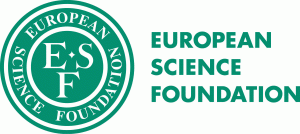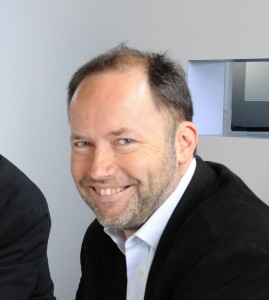 The European Science Foundation invites applications for grants to attend the European Forum for Energy Research’s second European energy conference. The conference will be held from 17 to 20 April 2012 in Maastricht, the Netherlands. funding covers the conference fee for doctoral students. This is a fantastic networking opportunity, so if you are eligible then do apply!
The European Science Foundation invites applications for grants to attend the European Forum for Energy Research’s second European energy conference. The conference will be held from 17 to 20 April 2012 in Maastricht, the Netherlands. funding covers the conference fee for doctoral students. This is a fantastic networking opportunity, so if you are eligible then do apply!
/ Full archive
Ethics and Conduct and Governance….OH MY!!
 Similar to Lions and Tigers and Bears, these nasty words often send a chill down the spine of researchers across the globe!
Similar to Lions and Tigers and Bears, these nasty words often send a chill down the spine of researchers across the globe!
“More roadblocks to delay my research?!”
“Hinder-full, not helpful!”
“Once you think you’ve ticked all the boxes, read all the policy/procedure and signed your life away, SMACK – the conduct officer hits you with a new hurdle!”
Sound familiar? These are just a few examples of the misconception towards my full-time job. Hello, my name is Julia Hastings Taylor and I am the University’s Research Development Officer responsible for ethics and conduct. Prior to joining BU I received my Masters in International Political Economy from LSE and before moving across the pond, I worked for the US Intelligence Community tracking down drug lords in SW Asia, Europe, and Africa. Drug traffickers—as opposed to university researchers—tend to not concern themselves with ethics or conduct, so I’m pleased to be part of an organization that takes compliance seriously!
My first mission—as impossible as it may seem—is to change the way researchers view ethics and conduct (and me, for that matter). I’m not the Big Bad Wolf and I don’t plan to ‘blow your research down’; on the contrary, I am here to support you, and strengthen the University’s research governance structure. Leave the scary ethics maze to me – I know the way and I will point you in the right direction. Struggling to understand and/or comply with funder regulations – don’t fret, it’s my job to ensure all regulations are clear and we have an easy-to-follow framework for compliance! I plan to streamline processes and procedures, outline ‘best practices’ in both ethics and conduct and ensure that the University’s policies are not only robust but also flexible.
 While we’re on the topic, here are a few of my thoughts: while I wouldn’t consider myself to be a ‘tree hugger,’ I am sensible…so come on folks…this is 2012…let’s move away from printing off reams and reams of forms to fill in and sign when we can simply create online forms with digital signatures. I like processes to be efficient, straightforward and simple and that’s what I hope to bring to the University’s ethics and conduct role. As the next handful of months will bring change—and we all know how much everyone loves change—please give me your feedback and suggestions for improvements, and be honest about your views on research ethics and conduct; I’d like for this process to be as inclusive as possible, but I can only knock on so many doors, invite you to so many meetings/forums and ask so many questions.
While we’re on the topic, here are a few of my thoughts: while I wouldn’t consider myself to be a ‘tree hugger,’ I am sensible…so come on folks…this is 2012…let’s move away from printing off reams and reams of forms to fill in and sign when we can simply create online forms with digital signatures. I like processes to be efficient, straightforward and simple and that’s what I hope to bring to the University’s ethics and conduct role. As the next handful of months will bring change—and we all know how much everyone loves change—please give me your feedback and suggestions for improvements, and be honest about your views on research ethics and conduct; I’d like for this process to be as inclusive as possible, but I can only knock on so many doors, invite you to so many meetings/forums and ask so many questions.
So, if you happen to see me lurking around your School in the coming months, please don’t assume I’m the secret police looking for my next victim….I’m probably lost and simply trying to find the loo!
B2B Marketing Conference at Bournemouth University 28th March 2012

A conference seeking to explore and discuss new opportunities and challenges in B2B marketing in an open, friendly and informal atmosphere.
Wednesday 28 March 2012
Time: 9am – 5pm
Venue: Bournemouth University Executive Business Centre
Please follow link below for further information and booking details.
http://www.bournemouth.ac.uk/newsandevents/Events/2011/dec/ne001_b2b_marketing.html
Involving undergraduates in research: the Psychology Research Apprenticeship Scheme
Following on from Sally Gates’ recent blog about involving undergraduates in research, we thought it would be good to share with the blog readership our experience of the Research Apprenticeship Scheme that we have been running in the Psychology Research Centre for the past three years.
Undergraduate students in their second year are offered the chance to work alongside staff and help them with their research. These positions enable 2nd year students to work directly alongside staff and help them with their research. Students get the chance to work together with researchers, gathering and analysing data, and working out what experimental findings might mean. The students often get a chance to work with specialist equipment that they might not have been able to otherwise and gain in-depth knowledge of what research really involves. And of course it looks great on their CVs. This experience engenders the research bug in the students – two were intrigued enough to apply for and win funding from the Nuffield Foundation for summer work in the Psychology Research Centre – and those students and others from the scheme are busy applying for PhD positions this year. The scheme also provides the students with invaluable experience for their own research project in their final year of study.
Of course, the scheme also helps staff. We really appreciate the help and support the ‘apprentices’ provide. The scheme has really grown and this year we were able to offer 25 research apprenticeship positions to 2nd year students. We hope the scheme will go from strength to strength and that in future years we may be able to offer one or two paid summer placements to our best undergraduate apprentice researchers.
FI-WARE Future Internet Research call for partners – this could be a great way to get in to EU research!
FI-WARE is the core platform of the future internet, invites proposals through the Directorate-General for Information Society and Media, for its open call for additional partners.The FI-WARE project has reserved a portion of the project budget to fund specific tasks to be carried out by new beneficiaries which will join the consortium after start of the project. These later-joining beneficiaries are selected by means of a series of competitive Open Calls.Topics for this call are: middleware for efficient and QoS/security-aware invocation of services and exchange of messages; business models and business elements definition and simulation. The budget for this call is €2 million, of which €1.25m is allocated to middleware proposals and €750,000 to BM and BE proposals. Check out further details on the FI-Ware call webpage. The deadline for submissions is the 25th April 2012.
BU Professor of Law presents in Geneva
 Bournemouth University’s Director for the Centre for Intellectual Property Policy and Management (CIPPM), Professor Martin Kretschmer, has been invited to speak at the World Intellectual Property Organization (WIPO) in Geneva.
Bournemouth University’s Director for the Centre for Intellectual Property Policy and Management (CIPPM), Professor Martin Kretschmer, has been invited to speak at the World Intellectual Property Organization (WIPO) in Geneva.
Professor Kretschmer will open the ‘Economics of Intellectual Property’ seminar series on 15 February 2012, with a presentation entitled ‘Private copying and fair compensation: An empirical study of copyright levies in Europe’.
His work is the first independent empirical assessment of the European levy system as a whole. It consolidates the evidence on levy setting, collection and distribution and reviews the scope of consumer permissions associated with levy payments.
Professor Kretschmer will present the results of three studies into printer/scanners, portable music/video/game devices, and tablet computers, including his analysis of the relationship between VAT, levy tariffs and retail prices in 20 levy and non-levy countries.
The full seminar series sees six presentations in Geneva between now and November, each by one of the world’s top Intellectual Property researchers. The full programme, including presentations by Professors of Stanford University and the University of Tokyo can be accessed online.
A video version of Professor Kretschmer’s and other ‘Economics of Intellectual Property’ presentations will be available after the event through the WIPO website.
JISC offer advice on making your grant application stand out
 JISC funds a wide range of infrastructure, services, innovative projects and studies. As competition grows for funds, JISC have offered some advice on successful bidding that can help you make a strong application that stands out from the crowd. Their advice is worth considering for all grant applications.
JISC funds a wide range of infrastructure, services, innovative projects and studies. As competition grows for funds, JISC have offered some advice on successful bidding that can help you make a strong application that stands out from the crowd. Their advice is worth considering for all grant applications.
Sarah Porter, Director of Innovation at JISC, said: “We want to attract bids from a wide range of universities and colleges, those that know JISC well and others that might be bidding for the first time or need additional help with their application. We know bidding for funds is a time-consuming process and we are therefore aiming to give organisations the best possible chance of being successful in their applications.”
JISC advice for successful bidding includes:
- Describe how your proposed project meets the criteria set out in the call
- Demonstrate how your idea is aligned with the objectives of your college or institution, including what buy-in you have from senior management
- Carry out an initial assessment of the risks of undertaking the project – and then mention this in your bid
- Include an initial project plan and show how the project will be managed
- Think ahead – include information about dissemination, embedding and evaluation mechanisms
- Show that your project is sustainable once the funding has ceased – not just financially but also in terms of the skills sets of the people involved, and any data/software preservation
- Go green – show that you have considered the environmental impact of your project, eg. server power and data storage space you need
- Consider the wider benefits of the project for UK education and research to show that your project is good value for money. You might think about generating workshops, briefing papers or web pages to help disseminate the findings of your project more widely
- Don’t let your bid fail on the easy stuff: make sure you stick to the page limit and get your bid in on time
More information on specifically what JISC are looking for and the funding available can be found on their website.
Two fantastic training sessions for EU submissions in February at BU!
 I’m delighted to announce that the brilliant Dr Martin Pickard of the company Grantcraft will be returning to Bournemouth in February. Martin has 25 years of winning EU funding and an excellent track record in helping academics write successful proposals.
I’m delighted to announce that the brilliant Dr Martin Pickard of the company Grantcraft will be returning to Bournemouth in February. Martin has 25 years of winning EU funding and an excellent track record in helping academics write successful proposals.
 EU Funding & Grant Writing:With FP7 drafts being released already, I’ve invited Martin to host a one day workshop on EU funding and grant writing, as it is very different from UK funders. I organised this session last year and the feedback we received from staff who attended was excellent“I must say it’s a great workshop, which provides us a number of important points we should pay attention to while drafting our proposals.”. This will take place in K103 (Kimmeridge House, Talbot Campus) on February 15th and all refreshments and lunch will be included. Attending this session will also enable you to access Martin’s excellent reviewing skills for your submission until September, which is fantastic.
EU Funding & Grant Writing:With FP7 drafts being released already, I’ve invited Martin to host a one day workshop on EU funding and grant writing, as it is very different from UK funders. I organised this session last year and the feedback we received from staff who attended was excellent“I must say it’s a great workshop, which provides us a number of important points we should pay attention to while drafting our proposals.”. This will take place in K103 (Kimmeridge House, Talbot Campus) on February 15th and all refreshments and lunch will be included. Attending this session will also enable you to access Martin’s excellent reviewing skills for your submission until September, which is fantastic.
 Marie Curie Fellowships: These grants are absolutely the best way to kick start your EU career; they have a fantastic success rate for applications (40%) and you only need one other EU partner. You can either apply to have an academic come to the university from Europe or you can go to another European country as part of the fellowship scheme. BU has had success with Marie Curie grants before and Martin is an absolute expert in writing these types of grant. This session will be dedicated to selecting the right grant for you and how to write a fantastic proposal. This will take place in EB203(Exec Business Centre, Lansdowne Campus) on February 16th and all refreshments and lunch will be included. Attending this session will also enable you to access Martin’s excellent reviewing skills for your submission until the official deadline in September.
Marie Curie Fellowships: These grants are absolutely the best way to kick start your EU career; they have a fantastic success rate for applications (40%) and you only need one other EU partner. You can either apply to have an academic come to the university from Europe or you can go to another European country as part of the fellowship scheme. BU has had success with Marie Curie grants before and Martin is an absolute expert in writing these types of grant. This session will be dedicated to selecting the right grant for you and how to write a fantastic proposal. This will take place in EB203(Exec Business Centre, Lansdowne Campus) on February 16th and all refreshments and lunch will be included. Attending this session will also enable you to access Martin’s excellent reviewing skills for your submission until the official deadline in September.
Booking for either day is compulsory as numbers are limited and each day will run 9:30-5 and will include lunch and refreshments. Please register for the event here stating which session you would like to attend (you may attend both if you wish), and stating any dietary requirements and any special arrangements you may require for attending.
View Keynote Speeches from the FSBI 2011 conference
The Fisheries Society of the British Isles (FSBI) 2011 Annual International Conference took place at BU in July last year.
The week-long event organised by the FSBI and BU focused on the damage being done to aquatic ecosystems and fish communities, and discussed how scientific evidence could be used to benefit the world’s fisheries.
The conference attracted many esteemed Scientists from a total of 22 countries who presented their research over five days.
Four of the keynote speeches, as well as an overview of the conference, can be seen below.
An overview of the Fish Diversity and Conservation: Current State of Knowledge
Julian Olden (University of Washington) – Invasive Species and Alternative Global Futures for Freshwater Ecosystems
Ya-hui Zhaoyh (Chinese Academy of Science) – Out of Sight Out of Mind: Current Knowledge on Chinese Cave Fish
David Dudgeon – Asian River Fishes in the Anthropecene – Conservation Challenges in an era of Rapid Environmental Change
Steve Railsback – Behaviour in Fish Conservation Models: Getting From “why” to “how”
Paul Skelton – Walking the Tightrope: Trends in African Freshwater Systematic Ichthyology
Bid-writing clinic in London – an RDU-funded place available
The Missenden Centre is holding a bid-writing clinic on the 16th March, in London.
The RDU will fund a place (fees and travel costs) for an academic to attend. This is on a first come/first served basis – so please contact Caroline O’Kane if you would like to attend.
If you are currently working on a funding proposal then this session will be extremely useful. Bring a draft or previously unsuccessful application to the session and receive advice on how to turn it into an award-winning bid.
- Date: 16th March
- Location: Woburn House, Tavistock Square, London WC1H 9HQ
- For more info on the session: www.missendencentre.co.uk/s1
To book your place contact Caroline O’Kane
SMART Awards – University as Sub-contractor
Pre start-ups, start-ups, and small and medium-sized businesses, from all sectors, may apply to the Technology Strategy Board for three types of grant :
– Proof of market grant
– Proof of concept grant
– Development of prototype grant
While universities may not apply directly, they may act as a sub-contractor to an applicant. Consequently this is a further source of funding for business/university collaborations.
The purpose of these awards is to assist businesses engage in research & development projects in the strategically important areas of science, engineering and technology, from which successful new products, processes and services can emerge.
The maximum grants vary between £25k and £250K. The Government will fund up to 60% of the project costs.
For an overview of the SMART programme click here:
For more detail click here:
Research Development Fund – Small Grants Scheme Closes 28th February

The next round of the internal small grants scheme closes this month on 28th February. The scheme provides up to £2000 per application for direct costs.
Examples of research activities covered by the RDF include:
- Pilot projects
- Pump-priming
- Interview transcription
- Fieldwork
- Visiting major libraries, museums, other research institutions, etc.
- Organisation of an academic conference at BU with external participants
- Attendance at external networking events leading to collaborative research proposals
- Meetings with external organisations to establish collaborations
- Preparation of specialist material or data
- Short-term Research Assistant support or replacement teaching
- Research consumables and equipment (providing it is clear these would not normally be purchased by the School)
This list is not exhaustive; applications can be for other expenses providing it is clear how the funding will benefit research at BU.
If you would like to apply the application form and full details can be found here. The applications must be emailed to the Research Development Unit (RDU@bournemouth.ac.uk) by 28th February.
Funders link up to support you going abroad
 Several UK research funders—including research councils, learned societies and charities—have agreed on principles to support researchers going abroad. The organisations have committed to several principles, including “ensuring that researchers who have trained or worked in the UK have access to the information they may require to enable their continuing involvement with the UK research base”.
Several UK research funders—including research councils, learned societies and charities—have agreed on principles to support researchers going abroad. The organisations have committed to several principles, including “ensuring that researchers who have trained or worked in the UK have access to the information they may require to enable their continuing involvement with the UK research base”.
Another is promoting the Euraxess UK website as a key information portal. The website, providing information and advice for UK research staff, is funded by the Department for Business, Innovation and Skills and managed by the British Council “We are committed to working in partnership with the other funders of academic fellowships to ensure researchers moving in and out of the UK research base have the support they need to make informed decisions,” said Rick Rylance, chairman of RCUK, in a statement.
NIHR Evaluation, Trials and Studies Coordinating Centre (NETSCC)
NETSCC is funded by the National Institute for Health Research (NIHR) and was established at the University of Southampton in 2008.
UK government support for medical research is channelled primarily through the National Institute for Health Research (NIHR) and the Medical Research Council (MRC). Broadly speaking, the NIHR funds later-phase health research, which has the potential to influence the delivery of healthcare to patients, while the MRC supports basic and early clinical research. (http://www.netscc.ac.uk/)
NETSCC manages four evaluation research programmes:-
EME – Efficacy and Mechanism Evaluation programme
Upcoming dates for EME
- Researcher-led workstream deadline for the next round: Friday 9 March 2012 (before 1pm)
- Commissioned workstream is now looking for research in Neurodegenerative disorders and myopathies and also Point of care tests. The deadline for applications is 13 February 2012 (before 1pm)
To find out more about EME, visit http://www.eme.ac.uk/index.asp
HTA – NIHR Health Technology Assessment programme ![]()

Upcoming dates for HTA
- Commissioned call for proposals now open: Deadline for application is Thursday 9 February 2012 by 1pm.
To find out more about HTA, visit http://www.hta.ac.uk/
PHR – NIHR Public Health Research programme![]()

Upcoming dates for PHR
- Commissioned Research calls now open
- Creative enterprises in open access settings, deadline is 23 April 2012 by 1pm
- Newly licensed drivers, deadline is 23 April 2012 by 1pm
2. Researcher-led outline call closing date is 2 April 2012 at 1pm. Highlight notices include:
- Local Sustainable Transport Fund, deadline is 2 April 2012 at 1pm
- Evidence Synthesis, deadline is 2 April 2012 at 1pm.
For more information about PHR, please visit http://www.phr.nihr.ac.uk/
HS&DR – NIHR Health Services and Delivery Research programme (a merger of the existing programmes HSR and SDO)
Upcoming dates for HS&DR
- Researcher-led calls now open, deadline is 15 March 2012 by 1pm; 19 July 2012; and 15 November 2012.
- Commissioned-led, open date is February 2012, deadline is 17 May 2012 by 1pm.
For more information about HS&DR, please visit http://www.netscc.ac.uk/hsdr/
If you are interested in applying for any of these funding schemes, please get in touch with the RKE Ops Senior Officers:-
- Jennifer Roddis (jroddis@bournemouth.ac.uk) for The School of Health and Social Care; The Business School
- Paul Lynch (plynch@bournemouth.ac.uk) for Design, Engineering and Computing; School of Tourism
- Shelly Maskell (smaskell@bournemouth.ac.uk) for The Media School; School of Applied Sciences
Privilege and Property: Essays on the History of Copyright
Professor Kretschmer’s co-authored publication ‘Privilege and Property’ (Cambridge OpenBook Publishers, 2010, with Professors Deazley and Bently) has been reviewed in the Swiss published journal Archiv für Urheber- und Medienrecht, or UFITA (trans. Copyright and Media Law).
The edited volume is a companion to the AHRC funded digital archive , ‘Primary Sources of Copyright’, which Professor Kretschmer has co-directed with Professor Bently of Cambridge University since 2006. The archive now comprises of more than 550 documents going back to Renaissance Italy (in facsimile, transcribed, translated and commented).
, ‘Primary Sources of Copyright’, which Professor Kretschmer has co-directed with Professor Bently of Cambridge University since 2006. The archive now comprises of more than 550 documents going back to Renaissance Italy (in facsimile, transcribed, translated and commented).
In the review, the lawyer and chairman of the Swedish Performing Rights Society, Dr Gunnar Petri, writes: “This magnificent resource comprises essential material from all the great traditions of copyright and will enormously facilitate comparative research…. By way of introduction, the editors present a highly interesting picture of the present state of copyright historiography, in itself a ground-breaking venture. They trace the elevation of copyright history into an academic subdiscipline to the years between about 1740 and 1790 in Britain, France and the German-speaking lands, see it in the jurisprudential treatises of the 19th century and note a decline in interest after the signing of the Bern convention [1886], signalling a more functional approach to copyright’s history.”
‘Privilege and Property’ and the digital archive at www.copyrighthistory.org “deserve the highest appreciation” (Petri).
Latest UN Global Report on HE for Sustainability
INTERNATIONAL: UN Global Report on HE for Sustainability
Global Universities Network for Innovation (GUNI) (2011) ‘Higher Education in the World 4, Higher Education’s Commitment to Sustainability: from Understanding to Action’ Barcelona: GUNI, UNU and Palgrave (pp. 18-28) ISBN 978-0-230-53555.
A new UN-commissioned report has been released. ‘Higher Education’s Commitment to Sustainability: From Understanding to Action’ is the fourth volume in a series published by the Global Universities Network for Innovation (GUNI) in collaboration with the United Nations University. The report is focused on the transformation of HE towards sustainability and the role of the sector in building sustainable communities. This volume includes papers by 85 authors from 38 countries and provides a map of how the regions are advancing this agenda. The regional picture is complemented with national and local case studies of experiences on thematic areas. An overview chapter, written by Prof Daniella Tilbury from the University of Gloucestershire, addresses questions about global commitment and progress in the sector. It draws on key research evidence from the literature and reflects on the trends evidenced in the regional reports which were commissioned by GUNI for this publication.
The chapter reviews teaching and learning, campus and community engagement, leadership as well as research activities. It identifies pathways for the future action. This chapter can be downloaded as a PDF.
Tilbury, D. (2011). Higher Education for Sustainability: A Global Overview of Commitment and Progress. In GUNI (Ed.), Higher Education in the World 4. Higher Education’s Commitment to Sustainability: from Understanding to Action. GUNI: Barcelona. (pp. 18-28)
Miss the FP7 Health Programme Infoday? Don’t worry, slides are available!
 The Infoday was organised by the Executive Agency for Health and Consumers (EAHC) who manages the Health Programme on behalf of the European Commission’s Directorate General for Health and Consumers (DG SANCO). Presentations made on the day include advice on administrative procedures and the technical contents of the Call which is open until 9 March 2012. A video and slides of presentations held at a recent Infoday on the 2012 Call for Proposals for the Health Programme (2008-2013) are available here.
The Infoday was organised by the Executive Agency for Health and Consumers (EAHC) who manages the Health Programme on behalf of the European Commission’s Directorate General for Health and Consumers (DG SANCO). Presentations made on the day include advice on administrative procedures and the technical contents of the Call which is open until 9 March 2012. A video and slides of presentations held at a recent Infoday on the 2012 Call for Proposals for the Health Programme (2008-2013) are available here.
UK-India Education & Research Initiative – funding opportunities
 UKIERI (UK-India Education & Research Initiative) is now accepting proposals for the following strand activities:
UKIERI (UK-India Education & Research Initiative) is now accepting proposals for the following strand activities:
| Strand 2: Innovation Partnerships |
| a) UKIERI Thematic Partnerships: The sub-strand will strengthen engagement and encourage future potential collaborations between the Indian and UK higher education institutions by facilitating collaborations along with promoting and assisting registered PhD students and post-docs in India and the UK to undertake short-term visits to work on research projects. All Indian HEIs which are recognised under the Section 2(f) and 12 B of the UGC Act) can apply.Click here to download the Application form, Guidelines, Financial Sheet and Work Plan. Deadline: 15 March 2012 |
| b) DST-UKIERI Thematic Partnerships: |
The sub-strand will strengthen engagement and encourage future potential collaborations between the Indian and UK higher education institutions by facilitating collaborations along with promoting and assisting registered PhD students and post-docs in India and the UK to undertake short-term visits to work on research projects. The partnerships will be for Science & Technology projects jointly funded by Department of Science and Technology, Government of India and UKIERI under the 5 key subject areas of:
Click here to download the Application Form, Guidelines, Financial Sheet and Work Plan. |
|
|
| The sub-strand aims to support the development of mutually beneficial partnerships between higher education institutions in the UK, US and India. The funds will support the strengthening of PhD students and post-docs in all three countries in developing international team work, problem solving and innovation in research and increasing mobility of PhD students and post-docs between India, the UK and the US.Click here to download the Application Form, Guidelines and Financial Sheet.
Deadline: 13 April 2012 |
| Strand 4: Enhancing Mobility |
| a) UKIERI India UK Staff Exchange Programme |
| The programme will promote staff exchanges between Higher Education Institutions /Schools/Further Education institutions across India and the UK. The exchanges are valid for up to 4 weeks and should aim to share and deliver best practices on curriculum and pedagogy and learn from each others systems.Click here to download the Application Form and Guidelines.
Deadline: 15 March 2012 |
| b) UKIERI India UK Study Missions |
| This sub strand activity will enhance mobility of students in the two countries through collaborations between UK and Indian Higher Education/Further Education institutions. Joint partnerships will work towards developing, facilitating and managing study tours for students at undergraduate and post graduate level.Click here to download the Application Form, Guidelines, Financial Sheet and Work Plan.
Deadline: 15 March 2012 |
| c) Study India Programme |
| The sub-strand aims to foster mobility of UK students to India to encourage them to undertake further study, work placements or pursue other opportunities in India. Through these student mobility programmes students would gain experience and a greater understanding of culture, education and economy of both countries. The strand also aims to strengthen cultural links between India and the UK by creating mutual opportunities for student mobility.The Study India Programme is supported by Tata Consultancy Services (TCS). The programme enables school leavers, students from UK universities and colleges to visit India for three / four weeks to gain experience of Indian culture, way of life, people, arts, politics, economy and language which sign post to and may open up opportunities for further study or work in India. The three / four week programme includes a one-week work placement or internship.
Click here to download the TORs Deadline: 15 March 2012 |
For further details, see the UKIERI website – http://www.ukieri.com/call_for_bids.html
For support in submitting a proposal, contact the RKE Operations team – http://blogs.bournemouth.ac.uk/research/contact/rke-operations/.












 Exploring Embodied Research: Body Map Storytelling Workshop & Research Seminar
Exploring Embodied Research: Body Map Storytelling Workshop & Research Seminar Marking a Milestone: The Swash Channel Wreck Book Launch
Marking a Milestone: The Swash Channel Wreck Book Launch No access to BRIAN 5-6th February
No access to BRIAN 5-6th February ECR Funding Open Call: Research Culture & Community Grant – Apply now
ECR Funding Open Call: Research Culture & Community Grant – Apply now MSCA Postdoctoral Fellowships 2025 Call
MSCA Postdoctoral Fellowships 2025 Call ERC Advanced Grant 2025 Webinar
ERC Advanced Grant 2025 Webinar Update on UKRO services
Update on UKRO services European research project exploring use of ‘virtual twins’ to better manage metabolic associated fatty liver disease
European research project exploring use of ‘virtual twins’ to better manage metabolic associated fatty liver disease